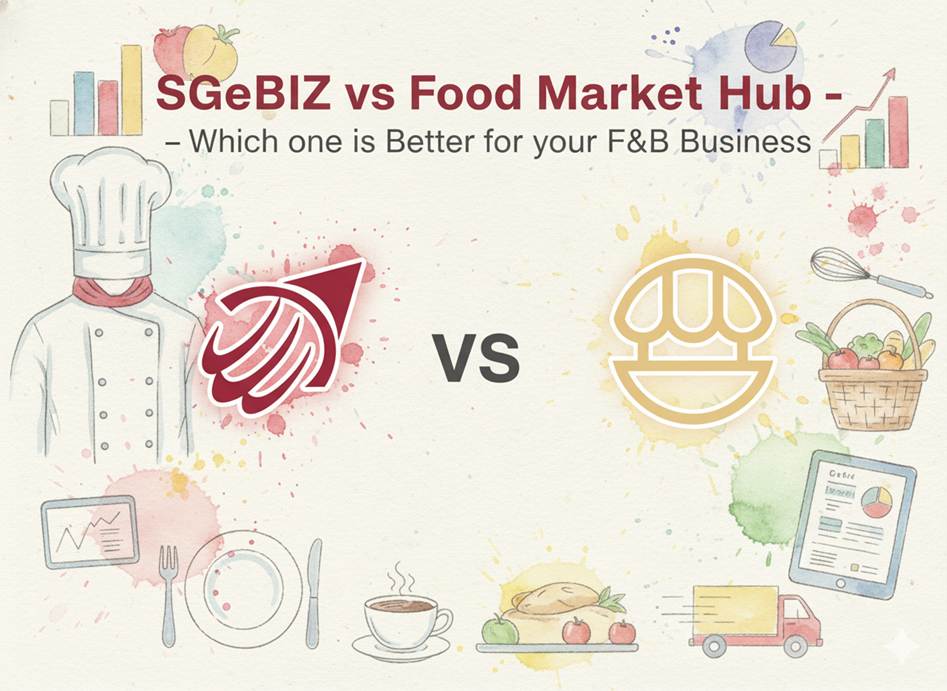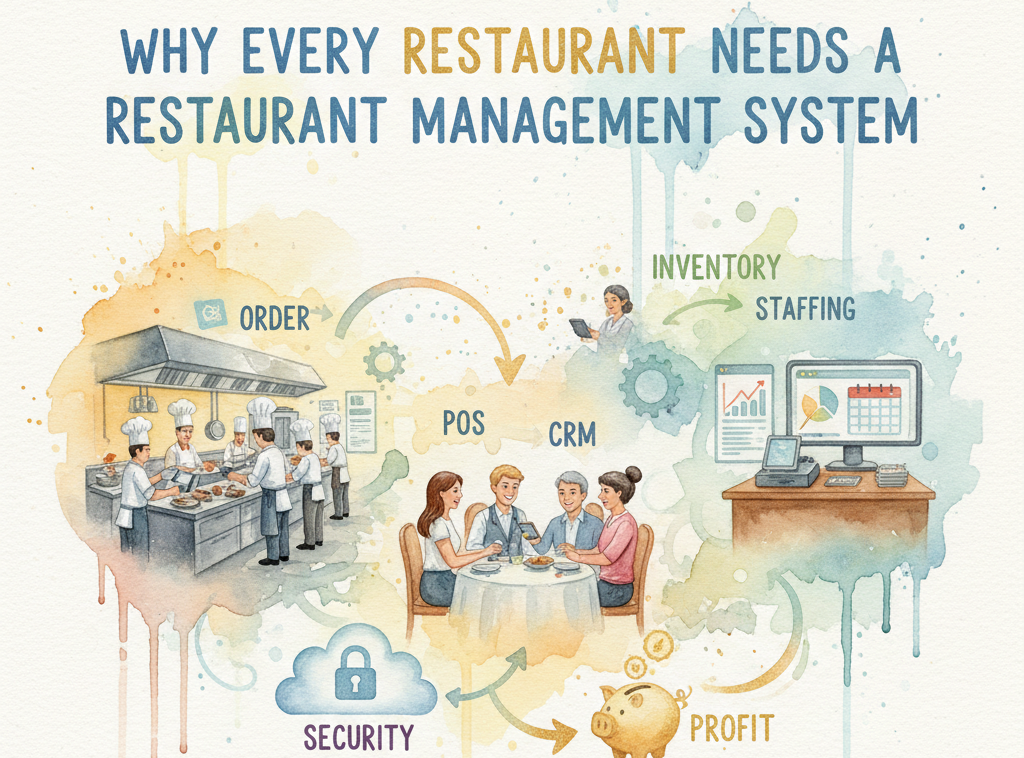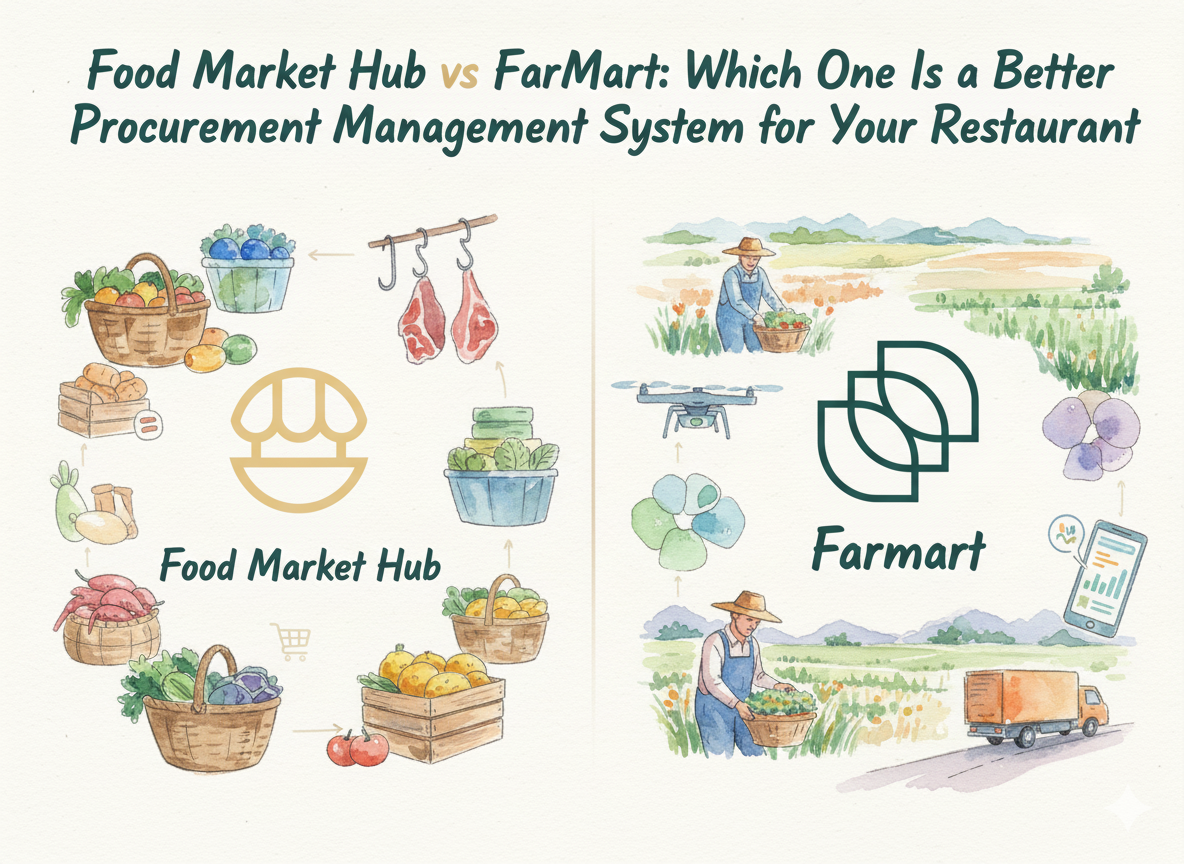SGeBIZ vs Food Market Hub- Which one is Better for your F&B Business

You already know how many small tasks add up in the kitchen: placing orders, checking stock, matching invoices, and keeping suppliers honest. Two platforms that promise to make this easier are SGeBIZ and Food Market Hub (FMH). Both help digitize procurement, but they serve different needs. Below, I compare them clearly so you can see which one fits your business and why FMH usually wins for food service.
What each platform is built for
SGeBIZ is a procure-to-pay and fintech platform designed for small and medium-sized businesses across various industries. It focuses on automating the entire P2P flow: purchase order → goods receipt → invoice → payment. It also offers payment products like buy-now-pay-later and cross-border sourcing for importers.
FMH is built specifically for food and beverage businesses like cafes, restaurants, cloud kitchens, and multi-outlet groups. It covers procurement, inventory tied to sales, supplier tracking, and the reporting you need to manage food costs and waste. FMH is made to fit kitchen operations without heavy customization.
How they handle the procurement workflow
SGeBIZ automates the classic procurement process. If your business runs on standard POs, formal receiving processes, and ERP accounting, SGeBIZ makes those steps leaner and faster. It works well in environments where procurement is formal and finance-driven.
FMH digitizes procurement with the kitchen in mind. You create orders, track deliveries, and see stock change as sales happen. FMH links ordering to actual demand, so your reorders are smart and tied to real consumption. This makes the whole restaurant supply chain management process more practical.
Inventory and Recipe Integration
SGeBIZ offers inventory modules and a recipe tool (CalcMenu). These can work for food businesses but are part of a broader SME product suite. Using them well may need setup and integration work.
FMH focuses on automated restaurant stock updation, COGS calculation, inventory analysis reports, and also offers a control function. Food Market Hub also offers you recipe management features that can help you track real-time stock and consumption.
Supplier Management and Vendor Relations
SGeBIZ gives you a marketplace and supplier connectivity, and it supports cross-border vendor relationships. It also offers features for financing suppliers and managing payment terms, useful if you import or need strong payment solutions.
FMH focuses on supplier management the way kitchens need it: track delivery reliability, compare prices over time, log order accuracy, and keep a history that helps you choose dependable vendors. FMH makes it easy to onboard small local vendors and to handle many supplier relationships without losing visibility.

Invoicing, Payments, and Financing
SGeBIZ is strong on payments. It provides embedded finance, BNPL for buyers, extended payment terms, and fast settlement for suppliers. If your main pain point is cash flow, SGeBIZ has big advantages.
FMH also offers you Buy Now Pay Later kind of benefits, which can help you get ingredients from your suppliers even when you don’t have cash flow.
Reporting and Forecasting
SGeBIZ offers real-time procurement analytics useful across sectors: spend tracking, price changes, and cross-border cost views. Those reports are powerful when you need enterprise procurement controls.
FMH gives food-centric analytics: dish cost breakdowns, item cataloging and price management, business summary reporting, ingredient cost trends, spend and waste tracking, and order vs sales comparisons. These insights help you forecast demand, fine-tune recipes, and cut food waste, the reports you actually use to control food cost.
Integration and Ease of Use
SGeBIZ integrates well with ERPs and accounting systems. It is a fit where existing back-office systems must keep running.
FMH integrates with POS and accounting tools that restaurants use. This can help in better management of the restaurant, and that can also help in better integration.
Where FMH has the Edge for Food Businesses
For kitchens and food service businesses, FMH pulls ahead in ways that matter day-to-day. FMH ties inventory to sales, automates reordering based on real consumption, tracks supplier performance in the context of food operations, and provides menu and waste insights you can act on. FMH is built to reduce food waste, lower ingredient unpredictability, and simplify supplier management for many small, local vendors.
Which one should you choose?
Food Market Hub is a better option if you’re specifically looking for software that can help you manage F&B operations specifically. Most of your F&B-related issues will be solved if you use Food Market Hub. The best part is that you don't have to get it customized according to your restaurant.










